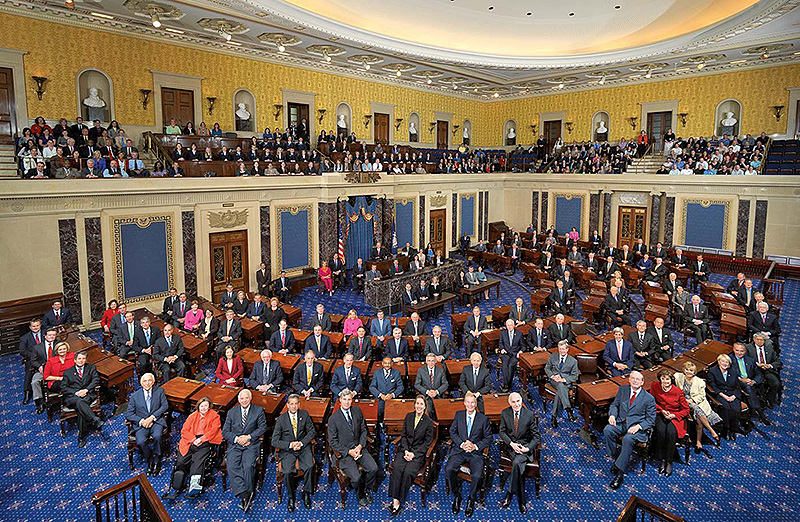
United Kingdom Election
On May 4, the people of the United Kingdom participated in new parliamentary election. Within the Parliament is the House of Commons and the House of Lords. The House of Commons is made up of 650 members representing constituencies (geographic areas). Some of the political parties in the country are: Conservative, Labour, Liberal Democrat, Scottish National Party, and U.K. Independence Party. The Conservative party won 331 seats, an outright majority. This means that they will be able to govern without needing a coalition partner (one of the other political parties) to control a majority of seats. According to pre-poll surveys, this was an unexpected result.
David Cameron won reelection as Prime Minister. He was 43 when he took office five years ago, making him the youngest Prime Minister since 1812. Cameron has been credited for creating jobs and improving the nation’s economy. But he has also been criticized for contributing to the growing gap between the social and economic classes. Cameron’s austerity program (deep cuts in government spending) has also caused a wide divide between those for and those opposed to such measures.
Dig Deeper Search the Opinion pages of your local paper and see if you can find any about the election in the U.K. What is likely to change and what is likely to stay the same. Back up your answer.
The Senate Reacts on Iran Nuclear Negotiations
Last month, btw brought you news of President Obama’s controversial proposal on dealing with Iran’s growing nuclear ambitions. Earlier this month, Congress responded with legislation action that would limit the president’s ability to act on his own. The Iran Nuclear Agreement Review Act was introduced in the Senate by Tennessee Republican Senator Bob Corker. If passed, it will give Congress the power to review any proposal about Iran and pass a resolution of disapproval if it chooses. Supporters say the bill will provide greater transparency, oversight, and make Iran more accountable for its actions.

The Senate overwhelmingly passed the bill in a vote of 98-1. The lone opposition came from Tom Cotton, Republican senator from Arkansas. It will go on to the House of Representatives, where it is also expected to pass. President Obama has said that he would not veto the bill and would sign the legislation into law. Current negotiations with Iran involve six world powers, including the United States. Under the current agreement proposed by the Obama Administration, existing economic sanctions will be lifted in exchange for stricter restrictions on the enrichment of nuclear material.
What Do You Think? Should Congress have the right to assert itself into this matter? Read and cite at least three sources before you come to a conclusion.
U.S. Economy Update
In April, employers in the United States added 223,000 new jobs and unemployment dropped to 5.4 percent. The numbers, gathered and reported by the Bureau of Labor Statistics, have showed a steady and healthy growth in our economy. (Less-than-robust numbers in March were blamed on exceptionally cold weather). Construction, business and professional services–which are typically higher-paying positions–added significantly more than historically lower-paying sectors like hospitality and retail. Healthcare jobs have increased, likely due to the Affordable Care Act.
While the news is positive, experts continue to disagree as to how it translates to the state of our economy. One concern is wage growth. Hourly earnings were expected to rise .2 percent in April but only increased .1 percent. The reason may be one of supply and demand, that candidates still outnumber jobs available. On the other hand, some commentators say that a healthy stock market and increasing corporate profits signal future prosperity. Predictions that the Federal Reserve plans to raise interest rates for the first time since 2006 is also likely to affect the numbers in the following months.
What Do You Think? Do some research into how experts are interpreting the Job Report numbers. What figures catch your attention and why?
Digital Dialect?
Is there anyone out there under 30 who doesn’t know what an emoji is? For the uninitiated, these are icons used in electronic communication such as texting and social media sites to express emotions. Of the reportedly 700 in existence, the most common emojis seem to be hearts and several variations on the smiley face. According to Instagram, the photo-sharing social media website, almost 40 percent of all text posted on the site contains at least one emoji. Because the site is fundamentally made up of images (vias photos), it lends itself to communicating in a visual shorthand.
The rise of “pictorial language” is causing some linguists to comment on the effects of written language. One advantage of the emoji is that it translates across languages, which could be good in a global culture with diminishing boundaries. One reason for the rise of the mini graphics is their inclusion on iOS and Android mobile device keyboards. Linguists have begun studying how this communication will evolve and vary from culture to culture.
